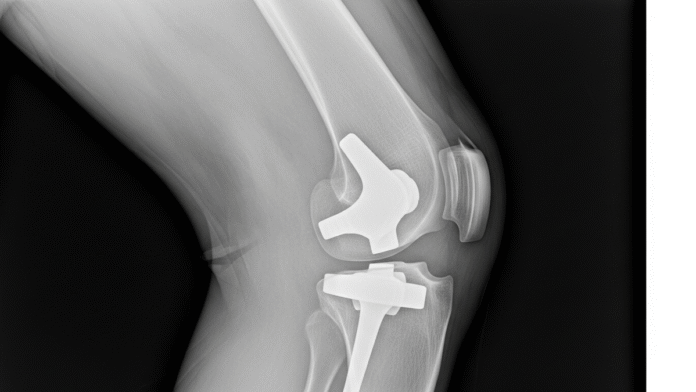Peptilogics has completed an oversubscribed $78m series B2 financing round. The funding will support the company’s phase 2/3 pivotal trial of zaloganan, an investigational treatment for prosthetic joint infections (PJI).
Presight Capital, Thiel Bio, and Founders Fund led the round, with participation from new investors AMR Action Fund, Narya Capital, and Beyond Ventures. This brings Peptilogics’ total equity funding to approximately $120m, along with grant support from CARB-X.
“What these investors understood is that hardware-related infections like PJI are different from other common infections. We chose to focus on this huge unmet need because the lack of effective therapeutic options alters the commercial landscape that has made antibiotic development difficult,” said Peptilogics’ CEO Jonathan Steckbeck.
“Developing treatments for these infections allows us to create a new category of surgical therapeutics for patients who currently have to undergo multiple life-changing surgeries to eliminate the infection.”
Prosthetic joint infections are a complication that can turn a successful joint replacement into a patient’s worst nightmare. With 45,000 PJI cases each year in the US and no approved therapeutics specifically indicated for this condition, patients face limited and often unsuccessful treatment options.
Current approaches force difficult choices: implant-preserving procedures such as DAIR (debridement, antibiotics, and implant retention) have reported failure rates of approximately 50% in published literature, while two-stage revision procedures require multiple surgeries, extended hospitalisation, and months of disability, yet still fail 15-25% of the time. Total PJI costs often reach more than $390,000 per patient, according to a study by Hany Bedair published in Clinical Orthopedics and Related Research.
“Biofilm is the common enemy and the reason why existing standard-of-care surgical interventions fail, even with systemic antibiotics,” says Nick Pachuda, a former orthopaedic surgeon and Peptilogics’ chief operating officer.
“Hardware-related infections are difficult to treat because bacteria on foreign surfaces hide in drug-resistant biofilm that current antibiotics cannot eliminate. Zaloganan quickly penetrates the biofilm locally and kills the hiding bacteria.”
In Peptilogics’ phase 1b study, zaloganan irrigation administered during DAIR procedures resulted in 13 of 14 patients remaining infection-free at 12 months. These encouraging results supported the company’s decision to advance into pivotal trials.
The challenge is growing as more joint replacement surgeries are expected. Projections show that by 2030, 3.48m knee and 572,000 hip replacements will be done each year in the US, each with a PJI risk that current medicine cannot fully manage.
Peptilogics has received multiple regulatory designations that support the development pathway for zaloganan, including: qualified infectious disease product (QIPD) designation, which provides 5 additional years of market exclusivity upon approval; orphan drug designation for the treatment of PJI; and fast track designation.
The upcoming phase 2/3 trial will enrol 240 patients beginning in December 2025, with the primary endpoint measuring the reduction in clinical failure rates. The study will also evaluate health economics measures including hospitalisation duration, readmission rates, and additional surgical procedures to quantify the cost savings that zaloganan can create for hospitals, health systems, and payers.
Jim Cornall is editor of Deeptech Digest and publisher at Ayr Coastal Media. He is an award-winning writer, editor, photographer, broadcaster, designer and author. Contact Jim here.





